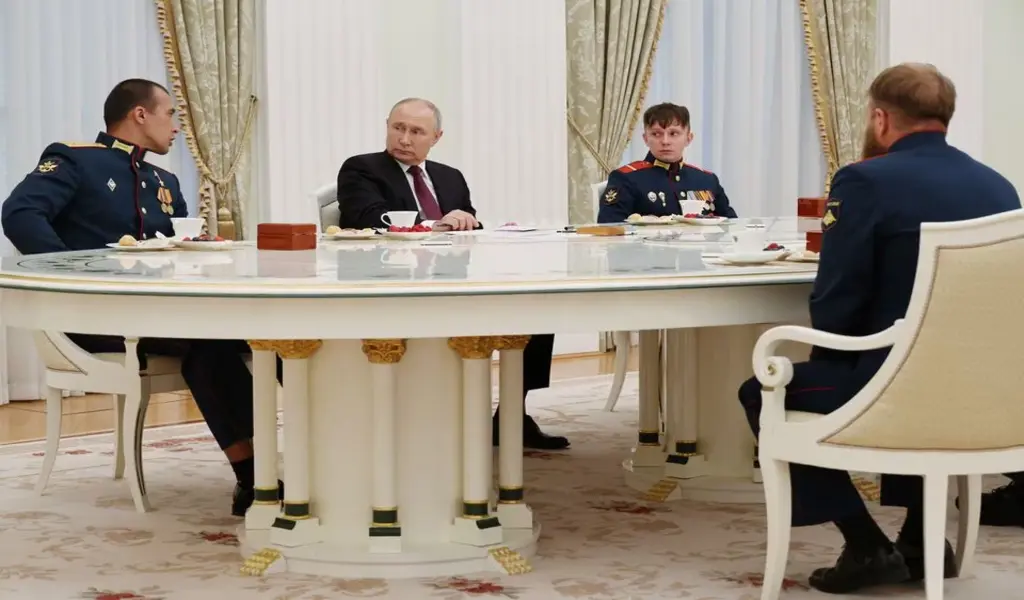(CTN News) – In a development that has reverberated through global news channels, Russian President Vladimir Putin has issued a directive requiring members of the infamous private military group Wagner to sign an oath of allegiance.
This directive has ignited discussions and speculation about the motivations and implications behind such a move.
As the world watches this unfolding narrative, it highlights the intricate nature of modern conflict, where the lines between state-sponsored and non-state actors blur, giving rise to complex questions about loyalty, accountability, and international security.
Putin’s Directive: Understanding the Wagner Group
The Wagner group, often described as a “shadow army,” has gained international notoriety for its involvement in various conflicts across the globe.
With purported ties to the Russian government, the group operates as a private military company (PMC) and has been linked to operations in Ukraine, Syria, Africa, and beyond.
The secretive nature of its activities has led to speculation about its motives, objectives, and the extent of its connections to the Russian state.
The Oath of Allegiance Directive
President Putin’s directive for Wagner fighters to sign an oath of allegiance has sparked intrigue and debate within the international community.
The directive, while not publicly disclosing the specific contents of the oath, raises pertinent questions about the dynamic relationship between the Russian government and the Wagner group.
The directive signifies a significant step toward formalizing the ties between a non-state entity and a nation-state.
It effectively blurs the boundaries between a private military group and a government-sanctioned force, giving rise to discussions about the responsibilities and roles of such entities in global conflicts.
Potential Motivations Behind the Directive
The directive’s underlying motives are subject to interpretation, and several theories have emerged. One perspective is that Putin’s directive is aimed at consolidating control over the Wagner group’s actions and activities.
By formalizing an oath of allegiance, the Russian government could assert greater influence over the group’s decision-making processes, ensuring that its actions align with the state’s strategic objectives.
Furthermore, the directive might be a response to concerns raised by international actors about the Wagner group’s involvement in various conflicts.
Formalizing their allegiance could serve as an attempt to provide a degree of accountability and oversight over the group’s activities, potentially mitigating allegations of human rights abuses or other violations.
The Complex Landscape of Modern Warfare
The Wagner group’s activities and the directive from Putin shed light on the evolving landscape of modern warfare. The rise of private military companies introduces complexities into the realm of traditional military engagements.
These entities often operate in the shadows, navigating a gray area between official state forces and independent actors.
Putin’s directive further exemplifies this complex landscape by merging the Wagner group’s actions with state objectives. It raises questions about the changing nature of conflicts and the roles that non-state entities play in shaping global dynamics.
As such groups gain prominence, it challenges conventional notions of state sovereignty and the traditional state-centric model of warfare.
Implications for Global Security and Diplomacy
The directive’s ramifications extend beyond Russia’s internal affairs, impacting global security and diplomatic efforts. The Wagner group’s participation in various conflicts has raised concerns among neighboring countries and the international community.
Formalizing their allegiance could intensify suspicions and potentially complicate diplomatic attempts to mediate or resolve conflicts.
Moreover, the directive adds to the broader conversation about the evolving role of private military companies on the international stage.
As these non-state actors gain prominence, it becomes imperative for global policymakers to address the implications of their activities on global security and stability.
Conclusion
Putin’s order for Wagner fighters to sign an oath of allegiance adds a new layer of complexity to an already intricate narrative
. It underscores the evolving nature of modern conflicts, where the lines between state-sponsored and non-state actors blur, raising questions about loyalties, responsibilities, and accountability.
As the international community observes this unfolding story, it is clear that the world of modern warfare is shifting, and traditional frameworks for understanding conflict must adapt to encompass the nuances presented by private military companies like Wagner.
In navigating this uncharted territory, one thing is certain: the dynamics of loyalty and allegiance are undergoing a significant transformation, and the consequences of such changes will reverberate across the global stage.








